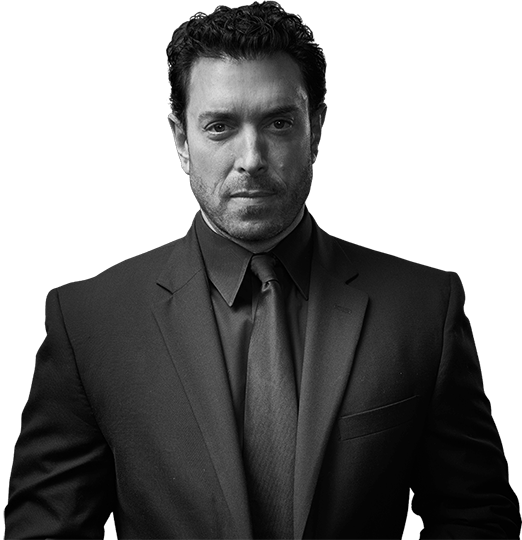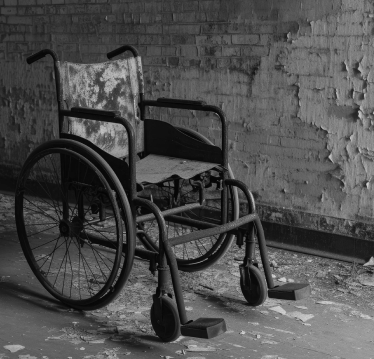Wrongful Death Attorney in Atlanta
Losing a loved one is never easy, and your grief and heartbreak can feel overwhelming. You may be left to deal with a loss you’ve never even imagined, and significant expenses that can be difficult to meet. If your loved one has passed as a result of the gross negligence of another party, you may experience unparalleled trauma and anger, too. We’ve walked beside grieving families not only in Atlanta but also in communities like Gainesville, helping them pursue justice after tragic, preventable losses.
Dealing with the insurance companies in a wrongful death claim can feel exhausting, and mega-corporation insurers are notorious for reluctance to pay just compensation. Filing a wrongful death lawsuit cannot bring your loved one back, but compensatory damages may help to alleviate your financial burdens so that you can focus on healing and learning to live life on your own.
A wrongful death lawyer in Atlanta, Georgia can help you to navigate the legal process and fight for the justice that your loved one deserves.
U.S. Marine Fighting and Winning for You 
The Scott Pryor Law Group has helped numerous clients with wrongful death cases — we understand that your story is unique and that your loved one’s story matters. We can help you to honor the memory of the person you’ve lost at the hands of another’s liable actions.

Table of Contents
- What is wrongful death?
- How to file a wrongful death claim in Atlanta
- Georgia laws that could impact a wrongful death case
- How a wrongful death lawyer in Atlanta can help
- How can you prove wrongful death?
- Compensatory damages in an Atlanta wrongful death case
- Connect with The Scott Pryor Law Group
What is wrongful death?
In legal cases, wrongful death is a death that was caused by the direct or indirect negligent actions of another person. Often, these actions aren’t purposeful. Negligence doesn’t have to be intentional to be proven in a civil case. However, violent crimes that lead to death may bring both criminal charges and a wrongful death lawsuit.
In Atlanta, wrongful death falls under personal injury law, and can bring compensation to family members who have lost a loved one. A personal injury lawyer in Atlanta can help you to understand the merits of your case and can advise you on the legal steps you should take.
Examples of a valid wrongful death claim could include a death caused by:
- Workplace accidents:
If an employer failed to adhere to OSHA (Occupational Safety and Health Administration) guidelines and didn’t maintain safe equipment or a safe work environment, the employer might be liable for the workplace accident that led to a wrongful death.
An excessively speeding, reckless, or intoxicated driver may be found liable for your loved one’s wrongful death in Atlanta.
- Product defects:
If a product is manufactured and sold with a safety defect or hazard, this could lead to a consumer’s wrongful death. Similarly, if there are risks associated with a product that the manufacturer fails to disclose, and a loved one dies as a result of using the product, you may have a valid wrongful death legal claim.
- Nursing home abuse and neglect:
Sadly, nursing home abuse or neglect can lead to wrongful death when elderly residents suffer harm due to mistreatment, inadequate care, or unsafe conditions. Examples include physical abuse, emotional neglect, or failure to provide necessary medical treatment. Families who lose loved ones due to nursing home abuse may be entitled to compensation for their loss through a wrongful death claim.
The Consumer Product Safety Commission (CPSC) estimates that there are 34,500 annual deaths in the U.S. due to product defects.

Wrongful Death Case - Jose DeAnda
After a tragic truck accident claimed the life of 19-year-old Jose DeAnda, his family sought justice for their beloved son and brother.
read our case study
How to file a wrongful death claim in Atlanta

In Atlanta, you can file any personal injury claim on your own. However, it may be wise to contact a lawyer before you proceed, as wrongful death claims are complex and may not always be easy to prove.
If you choose to file an insurance claim or lawsuit on your own, you’ll need to contact the liable party’s insurer to begin the claims process, or visit the Fulton (or Dekalb, depending on where the wrongful death occurred) County Clerk’s Office to fill out all necessary paperwork to file a lawsuit.
Georgia laws that could impact a wrongful death case
Before you proceed with your case, it’s important to be aware of the Georgia laws that could impact the progress of your lawsuit. The Scott Pryor Law Group can provide you with a wrongful death attorney in Atlanta to advise you on these laws and collaborate with you to determine how you should proceed.
Wrongful Death Statute
According to Georgia law O.C.G.A. § 51-4-2, the spouse of a decedent is first in line to file a wrongful death claim. The spouse must also prove that they are acting in the best interest of the decedent’s minor children. The wrongful death must have been caused by the negligent actions of another person in order to pursue a claim.
If the decedent wasn’t married, but is survived by any children (including those born out of wedlock), those children may file a wrongful death claim. If the decedent wasn’t married and does not have any surviving children, a surviving parent may claim and sue for the full value of life of the decedent. All incurred funeral and medical expenses can also be claimed in compensatory damages.
In a case where a favorable verdict is determined for a surviving spouse and minor children, any awarded monetary amount must be divided equally. However, the spouse must receive at least one-third of any compensation.
Finally, if a minor child files a wrongful death lawsuit, their surviving parent or legal guardian may act as conservator of any awarded compensation.
- Summons & Complaint
- Services of Process
- Defendant's Answer
- Client Involvement
- Elements to Prove:
- First Party No-Fault MedPay/PIP
- Third Party Auto
- Negligence:
- Treatment
- Interrogatories
- Request to produce
- Subpoena medical records
- Motions
- Depositions
- Experts
- Meet with doctors
- Witness list
- Attempt settlement
- Prepare for trial
NOTE: A case can settle at any time during this process. Very few cases go all the way to trial.
Statute of Limitations
In Georgia and across the U.S., there are statute of limitations laws in place to protect both the plaintiff(s) and defendant(s) in a civil case. These personal injury lawsuit regulations give plaintiffs ample time to file their claims and protect defendants from frivolous, old claims.
Per Georgia statute § 9-3-33, you have two years from the date of your loved one’s death to file a legal claim. However, there are a couple of exceptions to this rule:
- If your loved one’s death was caused by a violent crime or felony traffic violation, the statute of limitations may be extended until a verdict is reached in a coinciding criminal case or until six years has elapsed (whichever period is shorter).
- If an adult decedent didn’t have an established will at the time of their death and leaves many claimants to a wrongful death case, the statute of limitations may be extended for up to five years or until estate issues are resolved.

How a wrongful death lawyer in Atlanta can help
In order to have a successful outcome in your wrongful death claim, you have the burden of proof to show gross negligence caused your loved one’s death. As you grieve and attempt to heal from your loss, this may prove especially difficult to handle on your own.
Insurance companies retain fleets of lawyers to lowball or even deny your claim, but an experienced wrongful death lawyer in Atlanta can help you in settlement negotiations. If you file a lawsuit and were not an eyewitness to your loved one’s cause of death, this may also present a challenge to proving your case.
A compassionate and dedicated wrongful death attorney from The Scott Pryor Law Group can learn the details of your claim and honestly communicate with you about the merits of your case.
The right lawyer can stand beside you as you begin to heal from your trauma, treat you with the understanding you deserve, advise you on the compensatory damages you should seek, and act as your advocate through the legal process.
If forensic experts, accident reconstructionists, eyewitnesses, and more can bolster your case, we’ll interview them and ask them to testify on your behalf.
U.S. Marine Fighting and Winning for You 
How can you prove wrongful death?
If your loved one died as the result of an accident or medical malpractice, it may seem like proving liability would be easy. However, proving gross negligence is a complex step-by-step process. An experienced wrongful death lawyer from The Scott Pryor Law Group can help ease your burden and strengthen evidence to build your case.
How to prove gross negligence
If someone causes a death based on willful, direct or unintentional actions, they may have violated the universal standard of care expected of all of us. Legally, this is known as gross negligence.
An attorney from the Scott Pryor Law Group will establish a case for gross negligence to help prove your wrongful death claim by proving the following:
- Duty of Care: Regardless of how a wrongful death occurs (for example, in a car accident, in the workplace, or in a hospital), a wrongful death lawyer in Atlanta will establish that a defendant(s) had a duty to safely act and failed to do so.
- Breach of Duty: We’ll show that the defendant breached (or violated) this duty by exhibiting exceedingly careless or maliciously deliberate behavior.
- Causation: Causation means that the defendant’s breach of duty directly or indirectly led to the death of your loved one.
- Damages: The pain and suffering the defendant’s actions caused your family and the fatal consequences of their actions, along with any financial expenses incurred as a result of the breach of duty, will be established as the damages you’ve experienced.
Compensatory damages in an Atlanta wrongful death case
The compensation you seek in an Atlanta wrongful death case is based on the damages you’ve incurred. Damages are classified in three categories: Economic, non-economic, and punitive. Let’s take a look at each category.
Economic Damages
Economic damages (also known as special damages) represent the measurable, financial losses you’ve experienced as a result of wrongful death. Here are some examples:
- Lost wages: If you’ve had to take time off of work, or quit your job due to funeral arrangements or time spent with your loved one in the hospital before they passed, you can claim this loss as an economic damage.
- Loss of income: If your loved one was the sole breadwinner of your household, or contributed to the financial support of your family, the loss of that income is considered an economic damage.
- Medical and funeral expenses: Before your loved one passed, any medical expenses that were incurred (including hospital stays, surgeries, and prescriptions) as a result of the defendant’s negligence may be covered under economic damages. Similarly, the costs of a funeral and interment are considered economic damages.
Non-economic damages
Non-economic damages (also known as general damages) represent the immeasurable losses you’ve incurred as the result of a wrongful death. Although there is no set monetary value on these losses, compensation can help to alleviate your financial burdens as you focus on your road to healing.
Non-economic damages in a wrongful death case can include:
- Emotional distress: The emotional toll of a loved one’s wrongful death can be overwhelming. If you’ve experienced anxiety, depression, and grief due to your loved one’s death, you may claim emotional distress.
- Mental anguish: Mental anguish is similar to emotional distress, but represents more significant psychological implications. For example, if a wrongful death causes you to develop diagnosed PTSD (post-traumatic stress disorder), this may be considered a non-economic damages claim.
- Pain and suffering: If a loved one endures severe pain and suffering due to the defendant’s gross negligence and then passes away, you might include this non-economic damages claim in your wrongful death lawsuit.
Punitive Damages
In general personal injury cases, punitive damages are rarely claimed by a plaintiff, and often are handed down by a judge or jury as a punishment to a negligent defendant. However, wrongful death cases may be more likely to include punitive damages.
In Georgia, punitive damages are also referred to as vindictive damages, and state code § 51-12-5.1 mandates that 75% of a vindictive damages award is allocated to the Georgia state treasury, and 25% of a punitive damages award goes to a plaintiff.
Here’s a good example of punitive damages in a wrongful death case:
If an intoxicated, speeding driver hits your loved one’s vehicle and causes their death, this driver’s gross negligence may lead to a valid claim for punitive damages.
Connect with The Scott Pryor Law Group
An Atlanta wrongful death lawyer with The Scott Pryor Law Group understands that your individual trauma and grief process is unique. We don’t want you to have to walk through the aftermath alone. Nothing we do can bring your loved one back, but we will fight for justice on their behalf.
We’ll stand beside you through every step of the legal process and transparently communicate with you to help you understand what to expect. Although the outcome of your wrongful death case isn’t guaranteed, we’ve successfully helped numerous clients and won multimillion dollar settlements by fighting for David vs Goliath justice.
The path to justice for your loved one can start now. Schedule your free consultation today.














